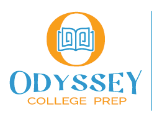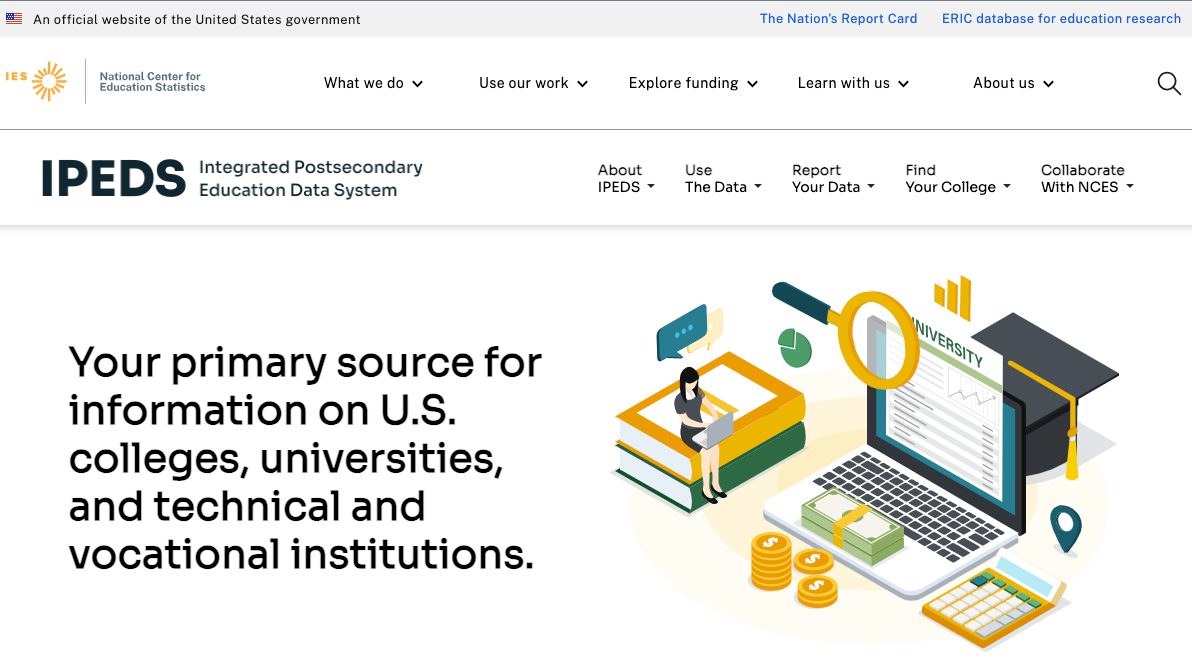How to Become an Educational Consultant? Tips & Advice!

How to get paid
This is the first article in a series of articles taking you through the steps of how to become an educational consultant. As an Independent Educational Consultant (IEC), you may offer services as a college planner or academic coach. Either way, your primary concern is taking care of your students. However, you also must make sure you get paid. This article covers the crucial steps of financially setting up your educational consulting practice. But, before we get into the details of how to start an educational consulting business, please understand two things.
First, your accountant’s advice supersedes anything I write. The same could be said for an attorney. This article is meant to be a resource for those starting their IEC journey. My colleagues and I, highly recommend you begin your journey as an entrepreneur with two things:
- An attorney.
- An accountant.
An attorney will know your legal abilities in the state or country you practice in. An accountant will know the tax ramifications of your practice. What they advise trumps anything we say.
With those disclaimers in mind, let’s begin with the basics of starting your educational consulting practice.
Choosing the Right Business Entity for IECs
Begin with structure. As you plan to launch your educational consulting practice specializing in private college prep services and admissions advising, seeking advice from a financial advisor and an attorney is essential. LegalZoom is an excellent alternative for low-cost legal advice. Invest time in finding the right tax preparer and bookkeeper. These two lifelines will keep you out of trouble and your books balanced. They can provide personalized insights based on your specific business goals and educational consultant requirements. Furthermore, they help you choose the most suitable structure to ensure success and mitigate risks. Again, though, go with what your attorney and accountant advise.
Sole Proprietorship
It's simple. A sole proprietorship is a business owned and operated by one individual. It's the most cost-effective option to set up. You would have complete control over your practice's operations as an educational planner providing private college prep services and admissions advising. Everything you earn is yours, allowing you flexibility in reinvesting or keeping the profits. How can educational consultants afford all of those conferences and college tours? They have very little operating expenses - no overhead. Making this an exciting independently-owned opportunity. However, remember that personal and business assets are at risk, and (if you choose to get it) liability insurance premiums might be high. Additionally, if anything goes wrong, it's all on you! So you’d need a plan for that. For instance, if you had a full client list and fell ill, you would still be on the hook for helping everyone you have contracted with for services. This shouldn’t be a deterrent, it should be added into the plans you are currently formulating. You’ll find that planning for challenges is as much as planning for success.
Advantages of a Sole Proprietorship
- Cost-effective
- Complete control
- Flexibility in finances
Disadvantages of a Sole Proprietorship
- Personal and business assets at risk
- High liability insurance premiums
- Sole responsibility for issues
S-Corporation (S-Corp)
Consider this. An S-Corp is a legal entity owned by shareholders. But, an S- Corp contains pass-through taxation similar to partnerships. For your private college prep and admissions advising practice, an S-Corp could offer limited liability protection for shareholders, safeguarding their assets. Profits would flow directly to the shareholders' tax returns, avoiding double taxation. (Bonus!) If you are working on your own but you will share the burdens with your lagal-life-partner, then you may want to consider this option over sole-ownership.
The ability to raise funds through the sale of stock is another advantage. If you wanted to raise startup funds, you could sell pieces of the compay’s ownership. On the downside, establishing and maintaining an S-Corp requires more time and effort than a sole proprietorship. Compliance with various regulations and additional paperwork are also necessary. Choosing a tax preparer who you feel comfortable working with long-term will provide you and your company with consistency in your reporting. Therefore, on the advice of your tax preparer you’ll make the best choice and the compliance reporting and tax information will be completed once and refiled each year. Because you chose a good tax preparer, they’ll see to it. Do not let complicated tax lingo steer you from the best choices - find the right advisors. A good tax preparer could walk you through and maintain that process. An S-Corp is the choice educational consultants make if they are planning to scale because they can easily offer shares to future co-owners but maintain controlling shares. Choose a good tax advisor with your future plans in mind.
Advantages of an S-Corp
- Limited liability protection
- Avoids double taxation
- Ability to raise funds through stock
- Provides for long term strategy
Disadvantages of an S-Corp
- More time-consuming to establish and maintain
- Regulatory compliance and paperwork
- Potential costs for professional services
Limited Liability Company (LLC)
If we blend the previous two entities in a smoothie, we’ll have an LLC. An LLC is a hybrid business entity that combines aspects of a corporation's limited liability with the pass-through taxation of partnerships. This structure could benefit an educational planner providing private college prep services and admissions advice. As an LLC owner, you would not be personally liable for the company's debts and obligations, protecting your assets.
Think about this. Imagine you accrue significant startup costs to your business. You'd likely want to avoid going down with a company that was closing. An LLC enables you to avoid paying the company's debt out of your pocket. The setup requires fewer formalities than a corporation, such as board meetings or filing with state agencies. It offers more flexibility in management and ownership structure. But again, a good tax preparer could walk you through the process and maintain your paperwork.
Advantages of an LLC
- Limited liability protection
- Pass-through taxation
- Fewer formalities and more flexibility
Disadvantages of an LLC
- Subject to Social Security and Medicare taxes
- Immediate profit recognition for tax purposes
- Employee benefits might not receive the same tax treatment

Financial Essentials for IECs
Now that we’ve discussed structuring your business entity, let’s look at the financials. There are many ways to overcomplicate this crucial part of your business.
Opening a Bank Account
However, one step isn’t negotiable: YOU MUST OPEN A SEPARATE BANK ACCOUNT. Don’t wrap your finances with your business if you plan on making an LLC or an S-Corp. A separate account is non-negotiable. It helps maintain clear financial records, which is crucial for tax purposes and your general sanity. It also presents a professional image to your clients. A business bank account is an essential tool for effective financial management.
Why is it important? Mixing personal and business expenses complicates tax filing. A dedicated business account simplifies this process. It makes it easier to manage your finances and stay compliant with tax regulations. Many banks offer business accounts with additional features like overdraft protection and higher transaction limits.
Opening a business checking account may have some advantages because banks often offer promotionals on new business checking accounts, shop around. Your business bank account with have your business name on it, no matter what entity choice you make. This may mean using your legal name in the title of your company or choosing a different name to ‘do-business-as’, commonly referred to as DBA. Check with your local ordinances regarding business licenses in your area. Some locales are easier to obtain a license than others but if you plan on gaining the advantages of a business account (and you do), you will need to show a DBA license. That will prove the DBA is yours and not used by someone else in your area. This is specifically regulated by the area which you do business, so please check your local regulations regarding a DBA.
Payment Solutions for New IECs
Remember this: to be a business owner, you must have something to sell and a way to get paid for it. In the 2020s, people often pay for things digitally. Most don’t mail checks or send ravens. We go to a website, click on a link, put in our credit card, and become recipients of the goods or services we just bought. You must choose what that experience will look like for your client and yourself.
When You're Starting Out
Here are some payment options to consider when starting. The options below will not have features to organize your finances (we’ll cover those later). However, they will ensure that you can charge for your services.
PayPal
PayPal is a beginner-friendly option. It's a well-known platform that doesn't require advanced technical skills to set up. It's particularly suitable for small or new businesses, like new IECs just starting. PayPal accepts multiple forms of payment, including Venmo and cryptocurrency, and is a name that customers trust.
PayPal is easy to set up and doesn't require a contract. You can cancel anytime. PayPal also offers multiple e-commerce features but lacks robust Point-of-Sale (POS) features. It charges $29 for the first POS card reader and $79 for each additional device. There's a $20 chargeback fee and extra fees for international credit cards. It's available in over 200 countries, making it a globally recognized option.
PayPal Features
- User-friendly
- Multiple forms of payment
- Available in 200+ countries
Stripe
Stripe is for the tech-savvy. It offers extensive customization options and is better suited for larger companies or those with technical expertise. Stripe provides a unified dashboard to manage business operations and has over 450 platforms and third-party integrations.
Why opt for Stripe? It allows for a highly customized customer checkout experience. Stripe is developer-friendly and can accept international payment options. However, it requires developer expertise for specific features and integrations. Stripe's POS hardware options are fewer, and it charges fees for international transactions. It's available in more than 40 countries.
Stripe Features
- Highly customizable
- 450+ third-party integrations
- Available in 40+ countries

For More Established IECs
The following payment methods are more advanced. While nothing prevents you from using the following options immediately, they require additional steps to set up and monthly expenses. So, consider these after your business has been up and running for a while. Or, consider upgrading to one of these platforms if you want to streamline your financial operations and professionalize your business.
QuickBooks
QuickBooks goes beyond basic billing. It’s a full-on accounting platform. It offers hundreds of app integrations and detailed inventory tracking. It's easy to scale and share with your accountant. QuickBooks is comparable to FreshBooks but offers more features and is better suited for more significant operations.
Why choose QuickBooks? It includes tools that help automate the reconciliation process, a global search function, and a customizable dashboard. However, there is a learning curve. QuickBooks can support larger small businesses with dozens of employees; the highest-tier plan includes 25 users.
QuickBooks Features
- Robust reporting tools
- Scalable for larger businesses
- Available in multiple countries
FreshBooks
FreshBooks may be a cheaper alternative for freelancers and independent contractors. It offers all the essential accounting functions and is available at a lower price than QuickBooks. FreshBooks auto-categorizes transactions for you but lacks a global search function and bank reconciliation tools.
Why opt for FreshBooks? It can support freelancers, contractors, and small businesses with a handful of employees. The highest-tier plan includes two users, and additional users can be added for a fee. FreshBooks integrates with more than 100 third-party apps but offers limited choices for direct payroll and point-of-sale integrations.
FreshBooks Features
- Strong invoicing features
- Suitable for freelancers and small businesses
- Available in multiple countries
Freshbooks or Quickbooks: Which is best for your IEC Practice?
I’m actually in a strange situation where I use both. I’ve been using Freshbooks for the past year in a test prep firm I run. It’s been a great experience and works well for that small business. Finally, I have been using Quickbooks for my primary LLC that I’ve run for the past five years. It has far more options and integrations. However, if I could return, I would probably have used Freshbooks over Quickbooks starting. It’s cheaper and a little easier to use.
With that said, I need the features of QuickBooks now. So, I’d hate to migrate my accounting to another platform. So, while it may cost you a bit more in monthly fees if you plan on growing your business to a larger scale, it may be worth starting and then sticking with Quickbooks. Remember that this is my anecdotal experience, not peer-reviewed data. Again, ALWAYS go with what your accountant recommends. While most accountants can navigate the reports of both platforms, they may prefer one over the other. So, if it makes it easier for them to use one platform over another, that could be a factor in your decision.

Have it all: Set up payment links
Conclusion
Let's recap. Setting up your Independent Educational Consulting (IEC) practice is more than just a startup venture; it's about laying a robust foundation for long-term success. Each choice, from your business structure to your financial setup, plays a pivotal role in shaping your practice's future.
Key Takeaways:
- Choosing the Right Business Entity: Whether it's a Sole Proprietorship, S-Corp, or LLC, your choice has far-reaching implications for taxation, liability, and scalability.
- Financial Essentials: A dedicated bank account isn't just an option; keeping your finances organized and professional is necessary.
- Payment Solutions: PayPal and Stripe work well for beginners, especially for web-based services. For more established IECs, QuickBooks and FreshBooks offer advanced features to streamline accounting and invoicing.
What's Next? Stay tuned for our next blog to explore the importance of building a network and collecting mentors in the educational consulting field. We'll offer strategies to establish meaningful relationships that provide guidance, open doors, and contribute to your practice's success.

About the Author
Marc Gray is the Founder and Director of Education for
Odyssey College Prep. Marc uses advanced aptitude testing to simplify the college admissions process for students and parents. He also guides students to create targeted passion projects to differentiate their college applications. He currently serves as the Highlands Company’s ambassador to CounselMore. In that role, he enjoys helping other college counselors use
aptitude testing to enhance their business. As an active member of CounselMore’s community, Marc hosts
CounselMore’s Mentorship Community Roundtable Discussion, where college counselors can learn from one another and instruct each other in best practices.


















